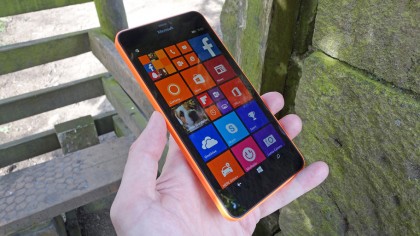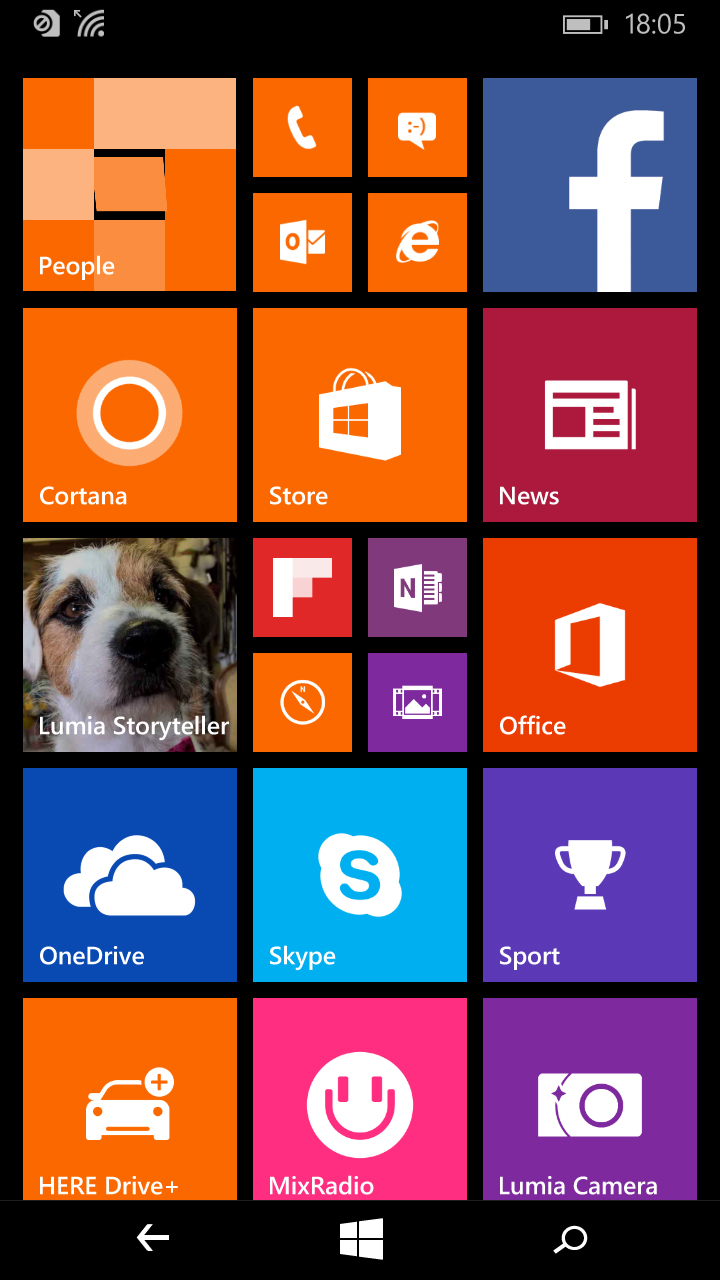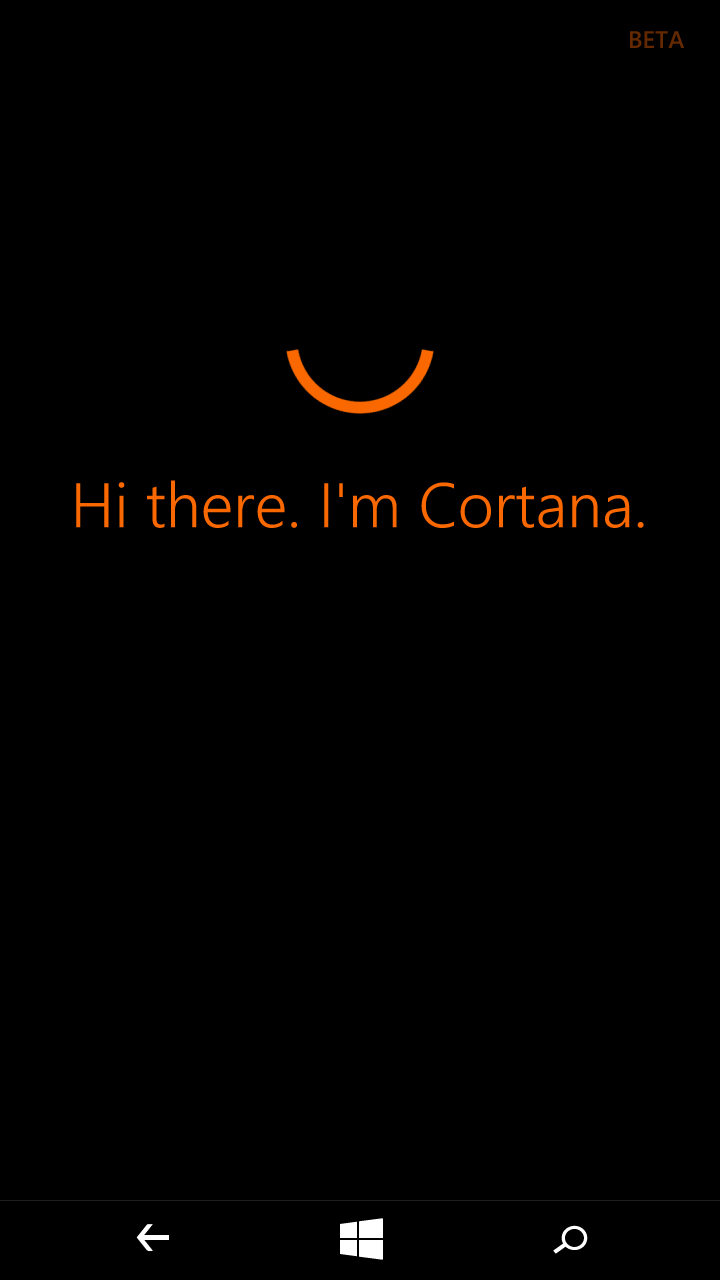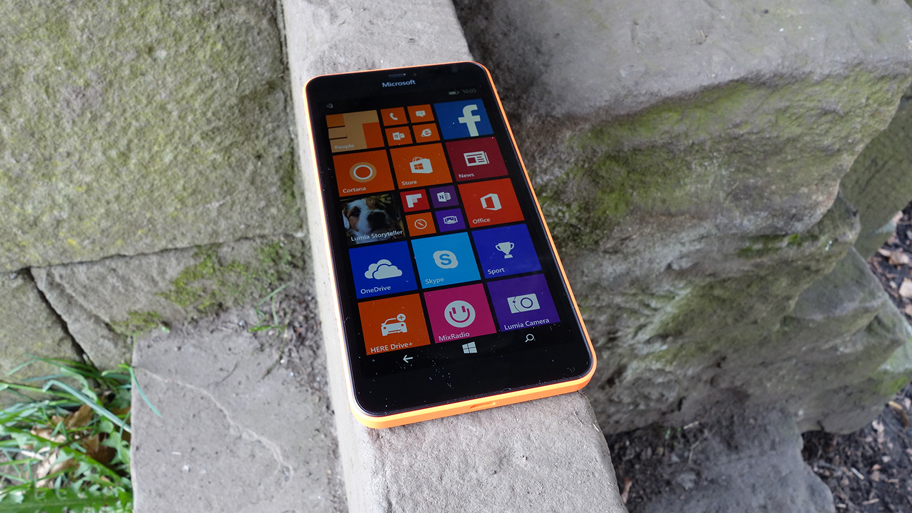Why you can trust TechRadar
The key selling points of the Microsoft Lumia 640 XL are its price, its size, and the fact it runs Windows Phone 8.1 (and will eventually get Windows 10 Mobile).
As for its price, it feels like a phone that's good value – Microsoft has said it's targeting business users with the handset, and for people glued to Office and Outlook all day it makes a lot of sense.
Large, phablet-sized phones may be awkward to use with one hand, but they leave more room for spreadsheets, websites, photos and everything else.

There are benefits if you're watching movies on the go, too, though of course you don't have the solid ecosystem offered by iTunes or Google Play. Netflix and BBC iPlayer are on Windows Phone at least.
That brings us to Windows Phone and a story we've had to lay out a hundred times before: app choice is its biggest weakness. Some people might be able to live without Snapchat and Crossy Road, but to not have anything official made by Google – from Gmail to YouTube – is a real problem.

That's not to say there aren't big names in the app catalogue. Spotify, Evernote, WhatsApp, Dropbox, Facebook, Twitter and (a beta version of) Instagram are here, but in terms of the big picture you're still a second-class apps citizen if you plump for Windows Phone.
The development of those big-name apps often lags behind the iOS and Android versions and most of the best new apps, as well as the majority of mobile games, never make it to the platform. Will the situation change with Windows 10 and 'universal apps'? We'll have to wait and see.
On the flip side, integration with Microsoft services is excellent. Outlook, Skype, Office and OneDrive all run smoothly and appear as soon as you sign in with a Microsoft account.
The Windows Phone interface has matured over the years, with improvements to live tiles and notifications, and it's not that far behind iOS and Android if you take apps out of the equation.
Performance
With specs such as those in the Microsoft Lumia 640 XL, you're never going to get blistering performance, but it's debatable whether or not you need it on a smartphone anyway (unless you happen to be a hardcore mobile gamer, perhaps).
A quick blast of Subway Surfers proved to be no problem for the Microsoft handset, and we'd expect you wouldn't have issues with most apps.

Windows Phone 8.1 was snappy and responsive on the handset, and I didn't notice any issues with lag or stuttering while I was using it.
One area where it perhaps has the edge over iOS and Android is in the uniform design style adopted by all of its apps – it's strange but actually quite appealing to see everything from Spotify to Facebook making use of the same look.

I should also mention Cortana, which mixes in some of the best features from Google Now and Siri to create an app that can control your phone's settings as well as schedule your meetings. It shows a lot of promise and it's only going to get better.
The well-respected – if a little outdated – AnTuTu Benchmark app gave the Lumia 640 XL a score of 11,671. Compare that with the 67,520 points raked in by the Samsung Galaxy S6 and you can see the kind of market segment we're in.
The Windows Phone benchmark app hasn't been updated for three years, but it gives you a broad idea of this phone's capabilities – it's not right at the budget end of the field, but it's close.
We had a few goes on Asphalt 8, one of the more demanding mobile games out there, and though it wasn't the most fluid or high-resolution experience we've ever had with the game, it performed well without any lag or stutter. What's more, the handset didn't heat up at all.
And Windows Phone is Windows Phone, which you probably know all about by now. It has its quirks, such as the live tiles, and despite the advancements it's made recently it still feels less polished than iOS or Android. Over to you in the summer, Windows 10.
Current page: Key features and performance
Prev Page Introduction Next Page Battery life and the essentials
Dave is a freelance tech journalist who has been writing about gadgets, apps and the web for more than two decades. Based out of Stockport, England, on TechRadar you'll find him covering news, features and reviews, particularly for phones, tablets and wearables. Working to ensure our breaking news coverage is the best in the business over weekends, David also has bylines at Gizmodo, T3, PopSci and a few other places besides, as well as being many years editing the likes of PC Explorer and The Hardware Handbook.
